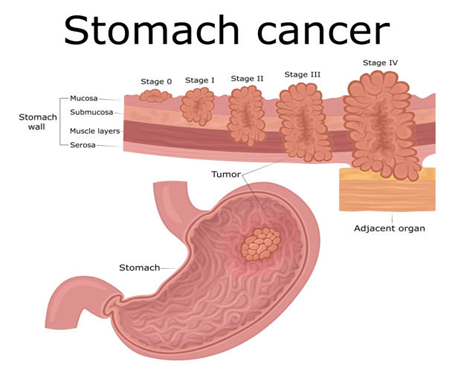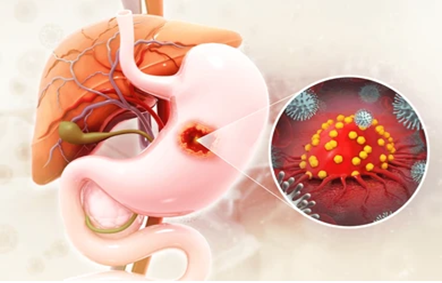Gastric cancer affects thousands of people in India and millions worldwide. It is one of the most aggressive forms of cancer, often detected at an advanced stage. In India, certain areas report a higher incidence, particularly in the northeastern states, due to dietary and genetic factors. The survival rate for gastric cancer varies based on the stage at diagnosis, with early detection significantly improving outcomes.
Studies indicate that men are at a higher risk compared to women, and the disease predominantly affects individuals over 50 to 70. These statistics emphasize the need for timely and effective treatment solutions to combat the progression of this aggressive cancer. One such treatment, Hyperthermic Intraperitoneal Chemotherapy (HIPEC), has revolutionized gastric cancer care by offering a localized treatment approach.
HIPEC for gastric cancer has been shown to increase survival rates, especially when combined with surgical removal of cancerous tissue. Its efficacy in targeting residual cancer cells and significantly reducing recurrence rates makes it a valuable treatment option. HIPEC is being issued in a prophylactic role in early cancers and a therapeutic role in cancers with a Peritoneal Cancer Index (PCI) up to 7.
According to Dr. Sandeep Nayak, a distinguished surgical oncologist in India, “HIPEC has shown remarkable results in gastric cancer treatment, particularly in cases where cancer has spread to the abdominal lining. Its ability to target microscopic cancer cells with heated chemotherapy is a significant breakthrough.”
Dr. Nayak has extensive experience in surgical oncology and is renowned for his innovative use of minimally invasive cancer surgeries. He is a pioneer in laparoscopic and robotic cancer surgeries in the country and has significantly improved outcomes for patients with complex cancers such as gastric cancer.
Moreover, Dr. Sandeep Nayak is skilled in combining precision surgery with modern therapeutic techniques and is one of the few experts offering HIPEC treatment in Bangalore, India. His team of highly qualified and experienced oncologists strive to provide the highest standard of evidence-based cancer treatments at an affordable cost, including dietary guidance, psychological counselling, and personalized medicine.
What is HIPEC?
HIPEC stands for Hyperthermic Intraperitoneal Chemotherapy. It is a targeted treatment for cancers that have spread to the peritoneal cavity, including gastric cancer. This treatment involves delivering heated chemotherapy drugs directly into the abdominal cavity after surgically removing visible tumors. The chemotherapy drugs are heated to approximately 41 to 43o C. Cancer cells are less tolerant to heat compared to healthy cells.
You receive a single large dose of chemotherapy. It is less toxic because the drugs are not injected into your bloodstream. This reduces their spread throughout your body compared to IV chemotherapy.
The heat helps the chemotherapy penetrate more deeply into the tissues and attack any remaining cancer cells while minimizing damage to healthy tissues. This combined approach aims to maximize treatment effectiveness and improve patient outcomes.
Understanding Gastric Cancer
Gastric cancer, also known as , originates in the lining of the stomach and can spread to other parts of the abdomen. It is often diagnosed at an advanced stage, making it challenging to treat. Common symptoms include persistent stomach pain, nausea, and weight loss, which can sometimes be mistaken for less severe conditions.
The progression of gastric cancer varies among patients. However, early detection and treatment are crucial for better outcomes. Comprehensive evaluation and staging of gastric cancer help determine the most appropriate treatment strategy.

Are you experiencing complications from breast reconstruction? It is advisable to discuss your concerns with a certified breast reconstruction specialist to explore your options and optimize your recovery.
HIPEC for Gastric Cancer
HIPEC in gastric cancer treatment helps eliminate residual cancer cells in the abdominal cavity. The procedure involves two main steps. First, the surgeon removes any visible tumors from the abdomen through cytoreductive surgery (CRS). Following this, the doctor will fill your abdominal cavity with a heated liquid containing chemotherapy drugs to target any remaining cancer cells. The specific drugs and duration of the treatment will be determined based on individual needs.

The heated chemotherapy solution circulates within the abdominal cavity for 30-120 minutes, during this process. The heat from the chemotherapy increases the effectiveness of the drugs, potentially improving treatment outcomes.
After completing the treatment, the drugs are drained from the abdomen. Then, the surgeon stitches the surgical incision, and the patient will be moved to intensive care for recovery. This method is particularly beneficial for patients with early-stage gastric cancer or peritoneal metastasis, as well as those with recurrent gastric cancer after initial treatment. It is generally not recommended for individuals with advanced or stage 4 cancer, as the treatment is less effective in these cases.
Benefits of HIPEC

- Targeted Treatment:
HIPEC delivers chemotherapy directly to the affected area, allowing for high doses targeting cancer cells more precisely.
- Reduced Systemic Side Effects:
By focusing the treatment within the abdominal cavity, HIPEC minimizes the exposure of healthy tissues to chemotherapy, reducing systemic side effects.
- Improved Survival Rates:
Research indicates that HIPEC can improve survival rates in patients with advanced or recurrent gastric cancer by effectively targeting residual cancer cells.
- Reduced Recurrence:
HIPEC may lower the risk of cancer recurrence by addressing residual cancer cells.
- Enhanced Efficacy:
The combination of heat and chemotherapy increases the drugs’ effectiveness, which can lead to better disease control.
Recovery and Aftercare

Immediate Post-Operative Care
After HIPEC surgery for gastric cancer, patients typically stay in the hospital for several days to recover from surgery. Your medical team will provide detailed information about what to expect during this period and how to manage any discomfort.
Abdominal Discomfort
Dietary Adjustments
A specific diet may be recommended initially to support recovery. This often includes easy-to-digest foods and gradual reintroduction of a regular diet based on tolerance.
Physical Activity
Light activities, such as walking, may be encouraged to promote recovery. However, patients should avoid strenuous activities until their specialist clears them.
Wound Care
Proper care of surgical wounds is essential to prevent infections. Follow the care instructions provided by your medical team.
Follow-Up Appointments
Monitoring Side Effects
Please keep track of any side effects or changes in health and report them to your specialist. This includes any persistent pain, nausea, or changes in bowel habits.
Medications
Emotional Support
Long-Term Surveillance
Frequently Asked Questions:
- Is HIPEC effective for all types of gastric cancer?
HIPEC is particularly effective for advanced or recurrent gastric cancer, especially when there is peritoneal metastasis. It is often not used as a standalone treatment but in combination with other therapies.
- How long does recovery take after HIPEC?
Recovery time varies but generally requires several weeks. Patients should follow their specialist’s recommendations for diet, activity, and follow-up care.
- What are the potential side effects of HIPEC?
Side effects may include abdominal pain, nausea, and possible complications related to the surgical procedure. Your specialist will guide you in managing these effects.
- Who is a candidate for HIPEC?
Candidates for HIPEC are typically those with advanced or recurrent gastric cancer, mainly when there is evidence of cancer spread within the abdominal cavity.
- What are the success rates of HIPEC?
Success rates can vary based on individual patient factors and disease stage. Research indicates that HIPEC can significantly improve outcomes in appropriate candidates.


